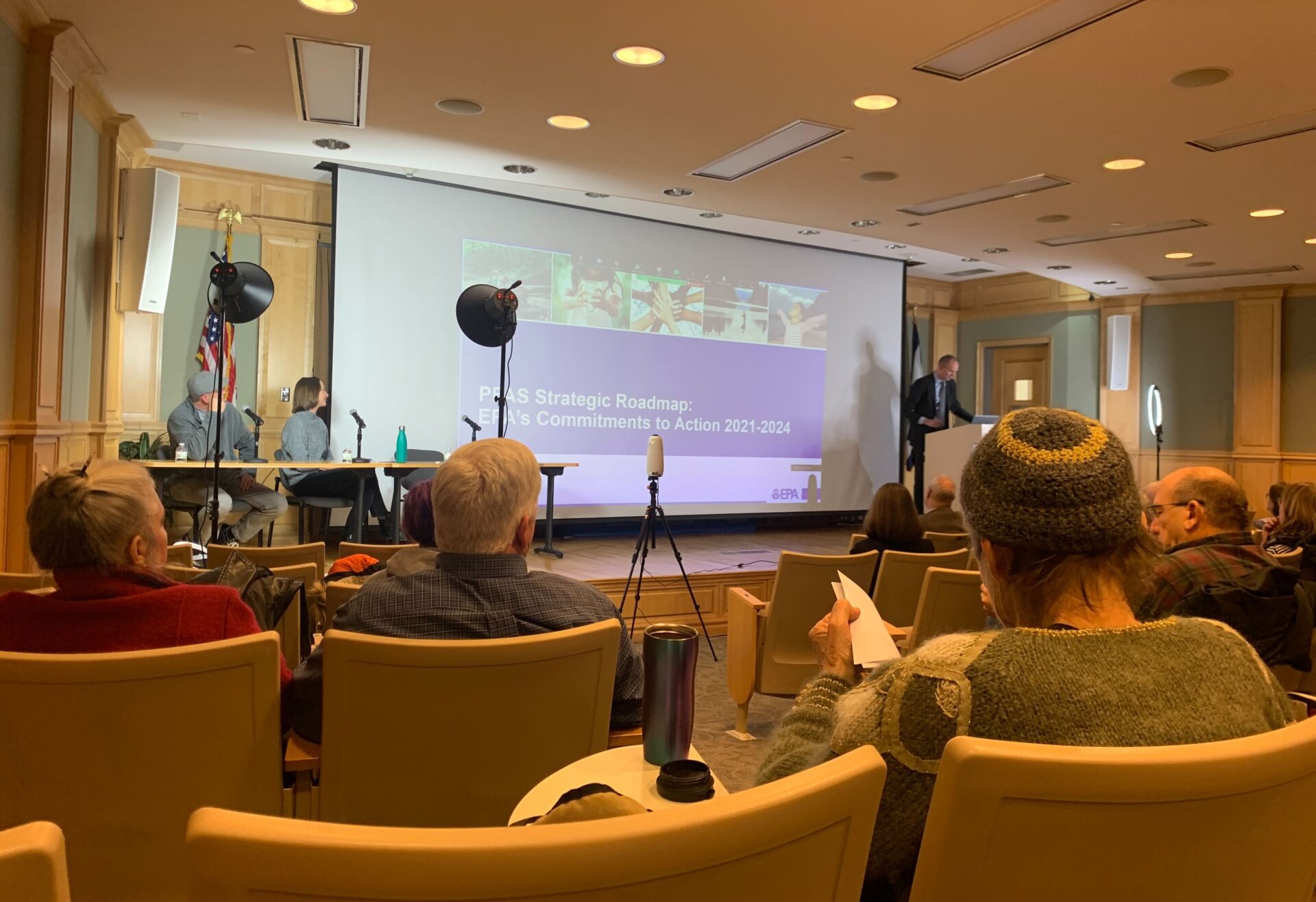Advocates held a community forum in Shepherdstown Wednesday to discuss potential action to regulate harmful “forever chemicals.”
These chemicals are called per- and polyfluoroalkyl substances, more commonly known as PFAS. Berkeley, Jefferson and Morgan counties are considered one of the PFAS “hot zones,” with unsafe levels found in 21 raw water supplies in these areas.
Statewide, PFAS chemicals have been found in 130 water supplies, with the state’s Department of Environmental Protection and Department of Health and Human Resources currently testing the state’s treated water systems as well.
Panelists, including West Virginia Rivers Coalition scientist Jenna Dodson, explained what that meant to concerned citizens.
“They’re in our waterways, it’s in our soil, it’s in our air because it also travels via air deposition,” Dodson said. “And so that’s why they’re so ubiquitous and again, localized contamination can occur.”
PFAS have been used to manufacture industrial products, like firefighting foam, as well as consumer products.
“Things that you would have around the household, like nonstick cookware and any water resistant outdoor jackets you might have, food packaging and popcorn bags and carpet and Scotchgard and all these different kinds of products,” Dodson said. “And so these products end up in landfills, many of them can have leachate that gets into the groundwater and percolates through the soil.”
Legislators introduced a bill in the state Senate Thursday that would see manufacturers self-report their usage of PFAS. It was sent to the Agriculture and Natural Resources Committee for discussion. A similar bill is set to be introduced in the House of Delegates.
